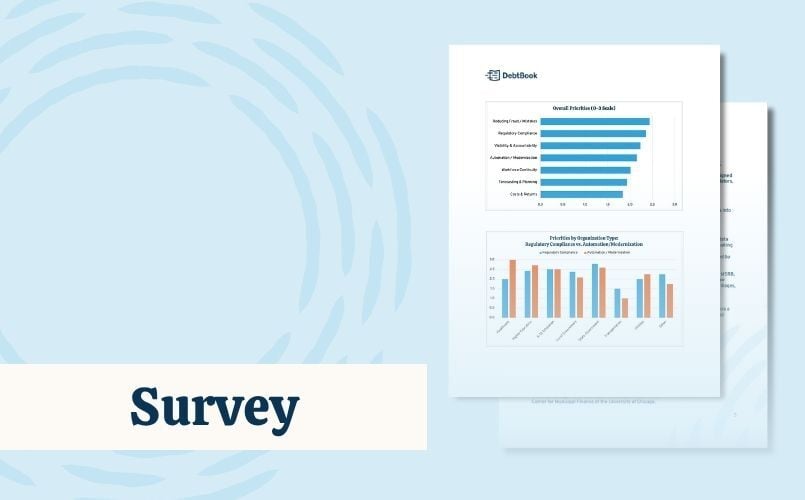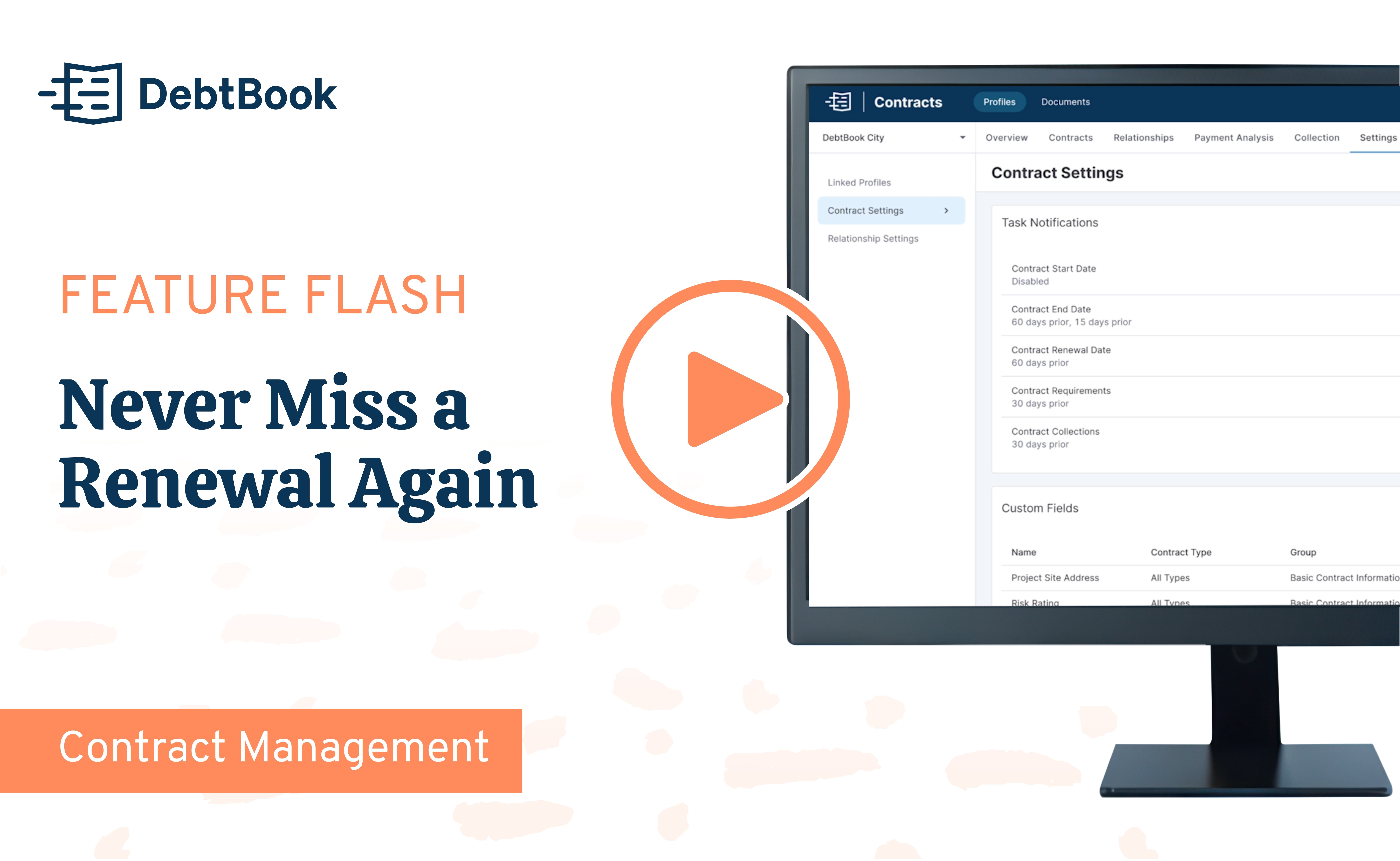When the University of North Carolina at Greensboro (UNCG) transitioned to DebtBook’s debt management solution, their goal was to streamline debt management and improve reporting accuracy. What they didn’t expect was uncovering a sizeable bank overcharge that had previously gone unnoticed. Thanks to DebtBook, UNCG was able to verify payment amounts and reconcile discrepancies, which led to this significant discovery.
“Previously, we assumed the bank invoices were always right,” said Ghazala Bibi, University Controller. “With DebtBook, we caught the error and corrected it. That alone saved us a substantial amount of money. Plus, DebtBook was able to handle the statement credit, which was incredibly helpful.”
Now, every time UNCG receives an invoice, they check it against DebtBook to ensure accuracy. This has empowered them to engage in more informed conversations with their banks, using DebtBook’s payment reporting tools to verify expected charges.
“DebtBook helped us transform a complex, unstable system into a streamlined, efficient process for managing our debt. Now, everything is centralized, accessible, and easy to navigate – even for new team members. Plus, DebtBook helped us discover a significant amount in overpaid bank fees," said Ghazala Bibi, University Controller.
The Background
The University of North Carolina at Greensboro (UNCG) serves over 19,000 students and maintains a debt portfolio that spans multiple departments, including athletics and auxiliary services. In 2017, when Ghazala Bibi joined as Assistant Controller for Financial Reporting, she inherited an intricate and outdated Excel spreadsheet that tracked the university’s bonds and debt-related data. Over time, the spreadsheet had become cumbersome, clunky, and difficult to manage due to numerous refundings and an overwhelming amount of linked data.
When Ghazala stepped into the University Controller role, she knew a change was urgently needed. Managing complex debt transactions with outdated tools was not only inefficient but also posed a risk to the accuracy of financial reporting.
The Challenge
“The Excel spreadsheet housing all of our debt was well-constructed initially, but over time, with every update, it became unstable and clunky,” Ghazala explained. The interlinked tabs for each bond, many dating back years, could not be deleted without risking errors, causing the file to become increasingly fragile and difficult to manage. This made tracking payments, amortization schedules, and bond documentation particularly challenging, especially for bonds related to athletics and auxiliary services.
“We had 9 to 10 tabs for each bond. Every time you opened the file, it took forever to load, and we had to be incredibly cautious because the links were so fragile. One mistake could throw everything off,” said Ghazala.
Ghazala’s challenge was compounded by the timing of her start – July, the beginning of the fiscal year, right in the midst of closing out the prior year’s financials. With two refundings already completed and another one pending, she and her team faced mounting pressure.
The Solution
To address these challenges, UNCG turned to DebtBook to centralize its debt management and compliance processes. DebtBook provided a comprehensive platform where Ghazala and her team could store all bond-related documentation, automate complex calculations, and generate detailed reports with a simple click.
“DebtBook allowed us to compile all of our debt information in one place. Instead of relying on unstable Excel files and scattered documentation, we now have everything centralized and easy to access.”
DebtBook guided the team through uploading years of documentation, refining their reporting, and organizing bonds by department. This significantly reduced the manual effort required to ensure accurate debt tracking and compliance.
Previously, Ghazala’s team spent hours verifying information across Excel, but with DebtBook, they could now run a report, copy and paste it into a template, and send it off – significantly reducing their workload.
“Before DebtBook, I had to spend precious time navigating a cumbersome Excel spreadsheet, verifying maturity dates, and checking statement balances. Now, we don’t have to do that. We trust DebtBook’s information, so there’s no need for repeated verification.”
As both Ghazala and her financial reporting manager were new to their positions, they asked DebtBook many questions during the setup process. “DebtBook was instrumental in helping us understand our debt. When we were trying to figure out how to set up profiles, DebtBook provided demos and detailed notes that made everything clear,” she explained. DebtBook even helped set up a split bond between auxiliary buildings and athletics entities on the backend.
“We just did this again for athletics this week,” said Assistant Controller, Justin Bishop. “They needed to know how much debt they have and with DebtBook it’s easy!”
During the implementation, the team also discovered discrepancies in some amortization schedules that hadn’t aligned with their Excel versions. DebtBook helped uncover errors caused by manual data entry in previous years, enabling the team to correct the schedules and make slight adjustments to ensure accuracy moving forward. This diligence eventually led to the discovery of the sizable bank overcharge, further showing how DebtBook saved the university significant funds by catching and correcting errors they might otherwise have overlooked.
The Impact
With DebtBook in place, UNCG saw immediate improvements in both efficiency and accuracy. Financial reports that once took days to manually verify could now be generated in minutes.
“We now have all of the information in one place. We click on a link and we have all of our documentation and bond history. It cuts down on previous time spent searching for everything to put a report together.” shared Ghazala.
Automating amortization schedules and tracking bonds across departments provided transparency and consistency in financial reporting.
“In the past, the Budget Office would come to us and ask all of the account related questions such as ‘How are we doing on these payments? What are we doing? How are we doing it?’ And we had to go and manually pull that information for them.” said Ghazala. “We don’t have to do that anymore. We can provide view only access so our Budget Director can find everything she needs to run the reports. Thanks to DebtBook we know the information is correct and she knows it’s correct.”
DebtBook has also made their EMMA reporting easier. “There were some important disclosures that had to be filed on the previous bonds with EMMA, and while we assumed someone had filed them, we just couldn't find them on EMMA. Now that all of the documentation is compiled on DebtBook our records are in sync. Plus our EMMA is a lot more accurate."
DebtBook also proved invaluable during personnel transitions. When Justin took over as Assistant Controller for Financial Reporting, he found DebtBook’s simplicity made it easy to quickly get up to speed. “DebtBook made it easy for me to navigate the system and train new team members. It’s intuitive, and everything we need is just a click away,” said Justin.
“We’ve come to rely on DebtBook so much,” said Ghazala. “We can’t imagine going back to the old ways. It’s made a huge difference in how we manage our debt and prepare our reports.”
The introduction of new features like premium amortization further streamlined UNCG’s processes, allowing them to move completely away from Excel. Ghazala and Justin look forward to continuing their partnership with DebtBook, confident in the platform’s ability to support the university’s evolving needs.




.jpg)
